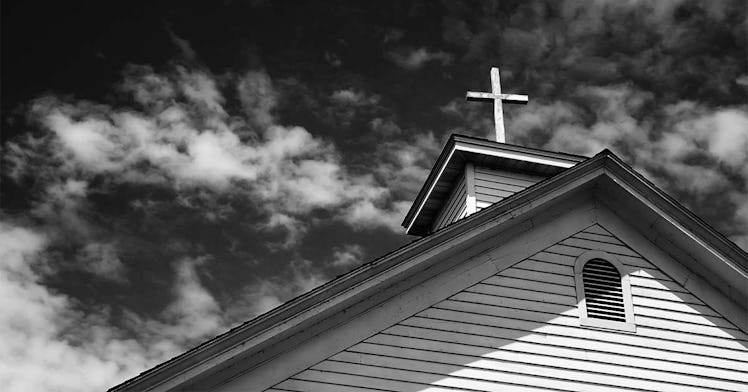DOJ To Defend Religious Schools’ Right to Discriminate. Why?
It may be a bid to help LGTBQ+ students.

Some LGBTQ+ advocates are angry at the news that the Biden Justice Department will defend a law that allows religious schools to discriminate against them in court. But what might appear to be a massive betrayal could actually a fairly shrewd strategic move meant to protect the rights of LGBTQ+ people over the long term. Here’s what’s going on.
Let’s start with the facts of the case, Hunter v. U.S. Department of Education. Title IX is the federal law that bans discrimination on the basis of sex (and, the Supreme Court ruled in 2020, sexuality and gender identity) at institutions that receive federal funding. However, it includes an exception for institutions “controlled by a religious organization.”
It’s this exception that the 33 plaintiffs take exception to. They’re arguing that allowing schools to discriminate in this way violates their own constitutional rights and the establishment clause of the First Amendment (“Congress shall make no law respecting an establishment of religion”). They also challenged a regulation explaining what “controlled by a religious organization” means, as it is ill-defined in federal law.
Despite his stated commitment to LGBTQ+ rights, the Biden Justice Department gave notice to the court that it intends to defend the law. A Slate analysis outlines possible two reasons why.
First, the DOJ has a duty to defend federal law.
“The job of the Justice Department in making decisions of law is not to back any administration, previous or present,” Attorney General Merrick Garland said at a Senate hearing yesterday. “It is not always easy to apply that rule. Sometimes it means that we have to make a decision about the law that we would never have made and that we strongly disagree with as a matter of policy. But in every case, the job of the Justice Department is to make the best judgment it can as to what the law requires.”
The DOJ could choose to not defend the law in court, as the Obama administration stopped defending the federal same-sex marriage ban and the Trump administration stopped defending the Affordable Care Act, but that option is typically reserved for extreme cases when they are convinced that a law is very obviously unconstitutional. It also leaves a void in the courts that can be filled by a third party, which brings us to the second likely reason the DOJ is defending the law.
The Council for Christian Colleges & Universities, a group representing more than 180 Christian schools, filed a motion to be an official participant in the case. Its goal is not only to defend the rights of religious schools to discriminate, but to establish that the religious exemption language in Title IX is not only legal but “constitutionally required.” That would be a shift without basis in precedent, but a Supreme Court that’s shown itself to be sympathetic to Christian schools could make it a precedent, which would be a disaster for LGBTQ+ students.
Such a ruling might mean courts defer to schools’ autonomy in making decisions to discriminate, essentially taking the government out of overseeing the religious institutions that receive its funding. It would also be difficult for Congress to close this loophole through future legislation, as such an action would be seen as infringing on the rights of religious institutions, something a federal court following precedent would likely strike down the same way it would strike down a law banning newspapers or reestablishing slavery.
The second reason the DOJ may be defending the rule is that by intervening at this point, the DOJ could make itself the sole body defending the Title IX religious exemption, preventing the CCCU from joining the lawsuit at all. That would keep its extreme position away from conservative federal courts, including the Supreme Court, that might be sympathetic to it.
After criticism from the plaintiffs in the case, the Biden DOJ amended its filing in the case to stress that the policy surrounding the federal law is being reviewed by the Department of Education to guarantee “an educational environment free from discrimination on the basis of sex.” That’s a clear signal that its involvement in the case, while technically on the side of the discriminators, could be part of an effort to erode their ability to take public money while discriminating against LGBTQ+ citizens.
This article was originally published on